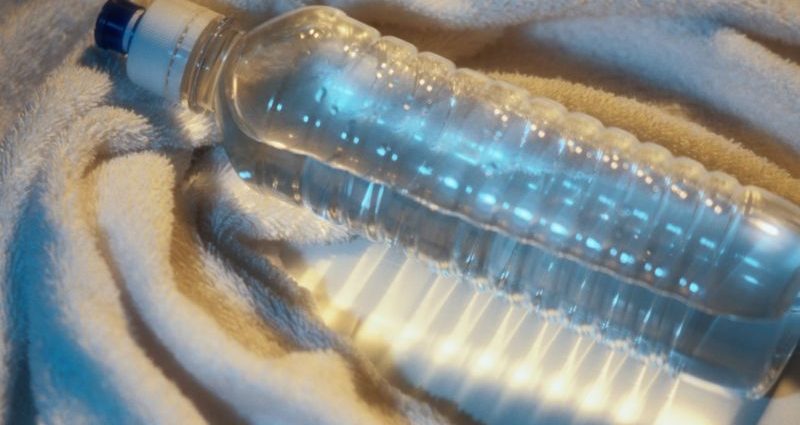MONDAY, Jan. 8, 2024 (HealthDay News) — Folks quenching their thirst with bottled water can expect to chug down hundreds of thousands of minute plastic particles with their refreshing H2O, a new study reports.
On average, a liter of bottled water contains some 240,000 detectible plastic fragments – 10 to 100 times more than previously estimated, researchers said.
Nine in 10 of these plastic particles were nanoplastics, they added.
Nanoplastic particles are so tiny that they can pass through the intestines and lungs directly into the bloodstream, eventually lodging in organs like the heart and brain, researchers said.
Because of this, medical researchers are racing to study how these nanoplastics might do harm to the human body.
“Previously this was just a dark area, uncharted. Toxicity studies were just guessing what’s in there,” researcher Beizhan Yan, an environmental chemist at Columbia University’s Lamont-Doherty Earth Observatory, said in a news release. “This opens a window where we can look into a world that was not exposed to us before.”
Microplastics are defined as fragments ranging from less than a quarter-inch to 1/25,000th of an inch.
Nanoplastics are even tinier particles, measuring smaller than 1 micrometer. By comparison, a human hair is about 70 to 75 micrometers across.
Unlike natural organic matter, most plastics don’t break down into harmless substances, researchers said. They just grind down into smaller and smaller particles made of the same material, with no theoretical limit to how small they can get.
Plastics in bottled water became a public issue after a 2018 study found an average of 325 particles per liter. Follow-up studies have since found more and more particles in bottled water, researchers said.
However, good estimates stopped at sizes below 1 micrometer, which is considered the boundary of the nano world, researchers said.
Previous studies could provide a bulk estimate of plastic nano mass in bottled water, but for the most part could not count the individual particles, lead author Naixin Qian, a graduate student in chemistry at Columbia, said in a news release.
“People developed methods to see nano particles, but they didn’t know what they were looking at,” Qian said.
For this study, researchers employed a new microscopy technique in which two lasers simultaneously probe samples to make specific molecules resonate, so they can be detected.
The team targeted seven common plastics, to see how many particles they could find in bottled water.
They tested three popular brands of bottled water sold in the United States, analyzing plastic particles down to just 100 nanometers in size.
They found 110,000 to 370,000 particles in each liter, 90% of which were nanoplastics.
One common plastic particle was polyethylene terephthalate (PET), from which many water bottles are made. The particles probably slough off into the water when the bottle is squeezed or exposed to heat, researchers said.
But PET particles actually were outnumbered by particles of polyamide, a type of nylon used in plastic filters meant to purify water before bottling, results show.
Industrial plastics like polystyrene, polyvinyl chloride and polymethyl methacrylate also were commonly found in bottled water.
However, the seven plastic types only accounted for about 10% of all the nanoparticles found in samples. Researchers have no idea what the rest of the particles are made of. If they are all nanoplastics, that means they could number in the tens of millions per liter.
The research team next plans to look at nanoplastic levels in tap water and wastewater. Researchers believe millions of microplastic and nanoplastic particles wind up in wastewater from each 10-pound load of laundry, coming off the synthetic materials in many articles of clothing.
The new study appears in the journal Proceedings of the National Academy of Sciences.
More information
The Water Research Foundation has more about microplastics in water.
SOURCE: Columbia University, news release, Jan. 8, 2024
Copyright © 2026 HealthDay. All rights reserved.

